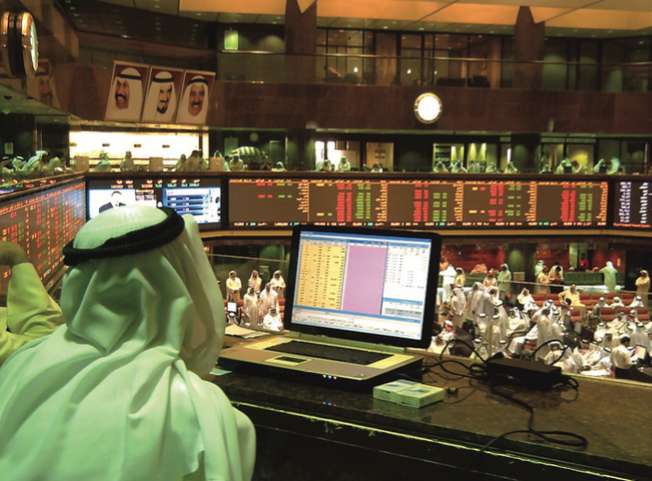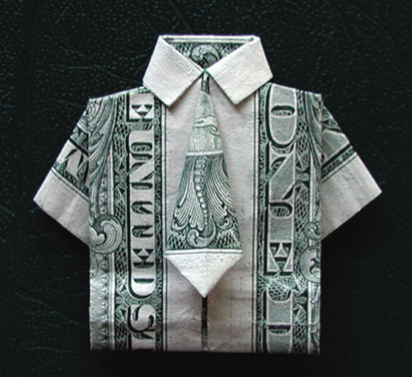In order to meet clients’ demands to trade shares of companies anywhere, at a faster pace, across different asset classes and for less money, stock markets around the world are under a great deal of pressure to merge or buy stakes in each other. The seven stock markets in the Gulf, which had a combined capitalization of $995 billion before the onset of market turmoil that took place last month, appear to be feeling this pressure too, as there is a great deal of talk about a GCC common market and a unified currency amongst the Gulf states. This evolution is important for the Gulf to secure its place in the complex, elaborately interwoven web of global stock exchanges.
With the exception of the UAE, which has two stock markets, one in Dubai and another in Abu Dhabi, each GCC country hosts a single stock exchange, all of which are state owned and regulated. Because these markets are still under the control of their respective governments, the process whereby an external entity is allowed to merge with or buy stakes in a particular market is highly complicated, and thus at present unfeasible. Alternatively, markets in the GCC opt for memorandums of understanding (MoU), which facilitate an agreement between parties regarding their markets, without the legally binding power of a contract.
Several MoUs have been established in past few years, including those between the Bahrain Stock Exchange and Dubai Financial Market, Dubai Financial Market and Pakistan’s Karachi Stock Exchange, and Abu Dhabi Securities Market and England’s FTSE. Such agreements are evidence of the efforts taken by GCC stock markets to support and develop the investment environment in the region in a way that will benefit all parties. MoUs aim to strengthen and expand cooperation between two markets, especially in the areas of mutual expertise and exchange of information relating to market developments. They also intend to spread awareness regarding the legal infrastructure available in both markets as well as investment opportunities. Furthermore, cooperation agreements encourage cross-listing and collaboration between brokers in both markets, thus enhancing synergies between markets, and increasing competitiveness in a way that will make investments more profitable.
Bucking the trend
Until present, the only exception to this unspoken rule is the strategic partnership between the Qatar and NYSE Euronext, which was announced in June 2008. Under the agreement, which has yet to materialize, NYSE Euronext is to purchase a 25% stake in the Doha Securities Market for $250 million in cash. If achieved, the partnership will constitute the largest investment ever made by NYSE Euronext in a foreign exchange, and will establish Doha as a Middle Eastern business hub for NYSE Euronext.
Though outside parties experience much difficulty coming into GCC markets, Gulf markets can easily buy stakes in a foreign stock exchange, as exemplified by rivals Doha Securities Market (DSM) and Borse Dubai. Established in August 2007 in an effort to consolidate Dubai’s two stock exchanges, one-month old Borse Dubai hit the ground running by entering a $4.9 billion deal with New York’s Nasdaq to buy Stockholm’s OMX. According to the terms of agreement, Dubai would hand OMX over to Nasdaq in exchange for a 19.9% stake in the new Nasdaq/OMX company; it would also acquire Nasdaq’s existing 28% stake in the London Stock Exchange (LSE). Simultaneously, Borse Dubai’s rival Qatar Investment Authority (QIA), the country’s sovereign wealth fund, snapped up a 20% stake in LSE and raided the market in Stockholm, buying up almost 10% of OMX’s shares. In order to end the bitter rivalry between the two, which originated out of both parties’ involvement in the LSE, Borse Dubai later sold its stake in LSE to QIA.
The rest of the pack
Comparatively, the remaining Gulf exchanges appear to be operating quietly. This is ironic, however, considering all of the necessary preparations that should be underway regarding the launch of a GCC common market and a possible monetary unification across the six Gulf states. Since the decision was made to move forward with the implementation of the GCC common market in January 2008, there has not been as much forward movement as one might expect. When considering the 15-year time frame used in Europe for the implementation of its own single currency, it is difficult to imagine that the Gulf will accomplish the same by its projected end date, which is only 14 months from now. 2010 is just a stone’s throw away in the macroeconomic forum, and there are many things to be considered, including the location of the central bank, the operational structures and standards, and various other technical issues.
The issue of currency alignment appears much less complex, simply because the majority of currencies in the Gulf are pegged to the US dollar. Presumably, when the currency union begins in the Gulf, the new unit will be tacked to a basket of currencies, similar to what has happened in Kuwait. This, however, is not as straightforward as it seems. Pegging the new unified currency to a basket of currencies removes a lot of decision-making room from the new local central bank. In other words, if the new unit is pegged to foreign currencies, policy decisions are no longer in the hands of the Gulf central bank, but rather belong to the central bank in the US, the central bank in Europe, the central bank in Japan, and so on. Various players with various interests will have a measured amount of control over the new currency and thus will issue constraints upon it. So, why not de-peg the new currency? The answer is that de- pegging would significantly risk the element of stability, which may result in consequences far worse than the current inflation.
Amongst other roadblocks stalling the currency unification are the unique natures of each of these six sovereign nations. Naturally, the central bank of each country will follow its own rather specific interests. Saudi Arabia’s chief economic interest is derived from a completely different set of fundamentals than that of Dubai, or Bahrain, or Qatar. Though it is true that oil and gas, to a certain extent, are commonalities, there are many other factors to be considered, and many conflicting interests to be appreciated and reconciled. Oman has already announced that it will, for the time being, not participate in the common Gulf currency.
Also, since the majority of trade conducted by the Gulf states takes place outside the GCC, the benefits of adopting a unified currency are considerably lower than those enjoyed by the Euro-zone, where 70% of trade is internal. There needs to be an advantage to the new currency that can aptly counter the probable sacrifices that each country will have to make by subscribing to it.
In a related development, lately various indices are being compiled on the Gulf markets. Indices, like those of FTSE, Van Eck Global, and Dow Jones, play a critical role in helping people (mostly financial experts and investors) to understand the movements of stocks. They document the historic movements, trends, averages — various factors that provide a better understanding of what is happening in the market, and are helpful when making investment decisions. Now, why do new indices on the Gulf keep cropping up this year? A larger number of credible indices on Gulf markets catch the eyes of foreign investors and urge them to take another look.
If the Gulf achieves monetary unification and a common market, it could open the door for outsiders to come in and buy stakes in the new market, thus resulting in an influx of money, more trading opportunities and more liquidity. Breaking down the existing barriers between stock exchanges and currencies, and doing it in a meaningful way, is a giant step in the right direction.







